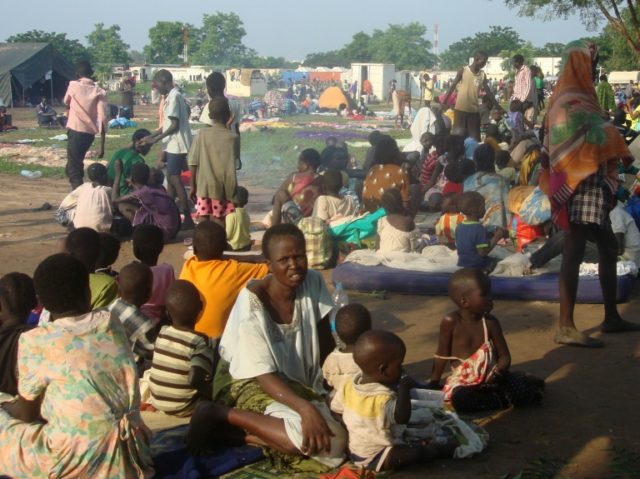Nimule (Uganda) (AFP) – Predatory soldiers and the sluggish brown waters of the Unyama River separate thousands of fearful South Sudanese from the longed-for safety of neighbouring Uganda.
Thousands of people on the South Sudan side are eager to leave following days of intense battles in the capital Juba, 200 kilometres (125 miles) to the north, which have threatened a return to war.
The few who have so far crossed say soldiers relieve civilians of their possessions before letting them pass.
“The soldiers near to the border beat people to force them back,” said Mary Modo, a 40-year-old mother of five.
“We got through but when we got to the border the soldiers made me leave all my belongings there. I only kept two cooking pots, the clothes the children and I were wearing, and one change each, and my handbag.”
Titus Jogo, a Ugandan official who processes refugees, said the number arriving dropped dramatically from around 200 a day to less than 100 when heavy fighting broke out in Juba on Friday and South Sudanese soldiers blocked the way.
“The South Sudan government doesn’t want people to know that there is a problem of displacement. They are violating the right of their people to seek asylum,” said Jogo.
Those who have made it come on foot and empty-handed.
– Emergency footing –
The United Nations refugee agency, UNHCR, estimates that as many as 20,000 people may be logjammed on the South Sudan side of the border, ready to stream across the narrow iron and tarmac bridge if the way is opened.
But for now there is no indication when that might happen.
Those who have made it are taken first to a transit centre before being resettled at the Pagarinya refugee camp.
The United Nations said on Tuesday that a total of at least 36,000 people have fled their homes in Juba since the latest bout of fighting erupted, while three quarters of the population need humanitarian aid.
“The majority of those arriving in Uganda from South Sudan are women and children,” said Sardhanand Panchoe, field coordinator for the UNHCR in the nearby town of Adjumani. Two-thirds are children, he said.
Panchoe said his team had been “on an emergency footing” since December as South Sudan’s peace on paper failed to translate into stability on the ground.
“Preparing for tens of thousands of potential new arrivals is a second emergency within an emergency,” he said. “We are working to try to avert that.”

COMMENTS
Please let us know if you're having issues with commenting.